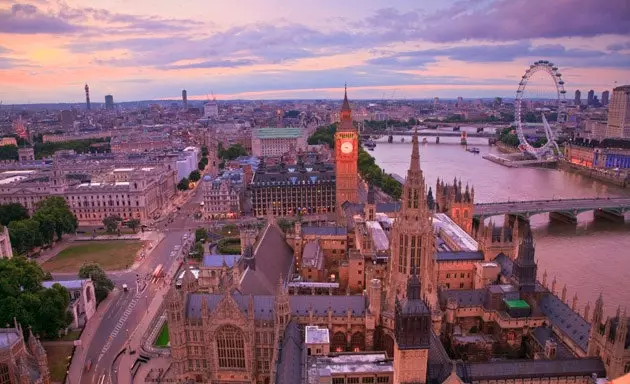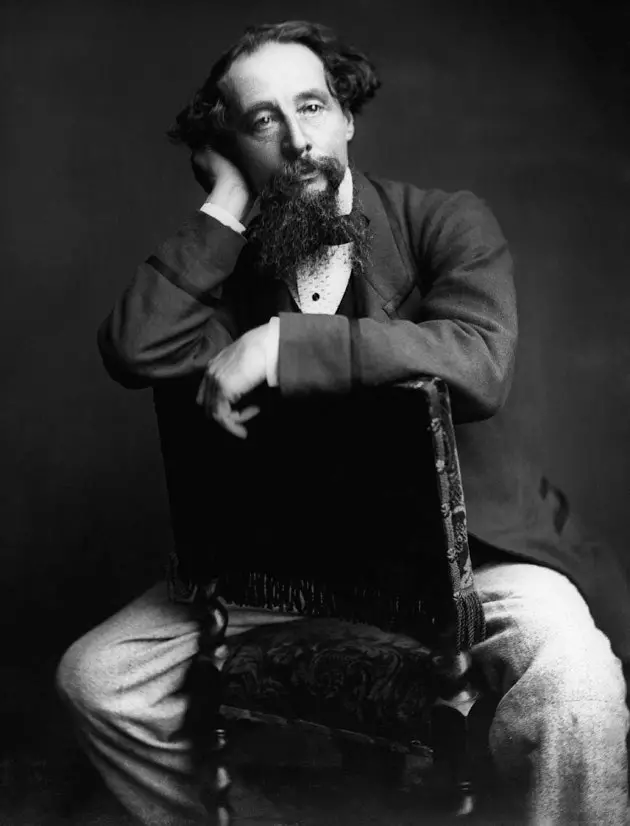
Beautiful sunset over London.
"It was the best of times, it was the worst of times", thus begins the famous novel by Charles Dickens, 'A Tale of Two Cities'. Without a doubt, one of the most universal beginnings of literature, and one of the oldest stories of Humanity, that of the struggle for change, as it recounts the hectic days of the French Revolution. As the date set for the bicentennial of the author's birth approached, many media have used these words to show the validity of Dickens's work today.
In fact, among the many things attributed to him, The presumable role of him as a predictor of the ailments of the 21st century in his nineteenth-century novels is striking: economic and labor crisis, crisis of values, immigration, neglect of the environment , and even, looping the loop, it is said that his way of writing, without any foresight or literary plan, is similar to that of the social network Twitter.
This comparison is not so strange, because in the same way that the digital age has unified the world, the fact that Dickens was able to drag masses wherever he went on his literary tours and get authentic hordes of ardent fans waiting for him at the doors from his hotel, classifies it as the first globalized author, the first superstar who revolutionized the world and unified feelings through a medium, his works, like the Internet.
The United Kingdom today, February 7, 2012, puffs out its chest for its most notable author after Shakespeare, according to insiders. And just in front of the tomb of the great bard in the Poet's Corner of the Westminster Abbey, since it is where the remains of the author of 'Great Expectations' rest, they have extolled the novelist at 11 in the morning, thus giving the kick-off to the Dickens year, yes, not without controversy.
Precisely on the bicentennial of the writer, his museum in London will close its doors in April to undertake his long-awaited facelift, something that never ceases to surprise more than one in the English capital, who wonders why he is doing it precisely now. Coincidences of destiny, the works must be carried out this year because if he does not, he will lose the subsidy that has been granted to him for it. Thus, the Dickens Museum, one of the most modest in London, will not be present at the two major events in the city in 2012, the Dickens year and the Olympic Games.

Charles Dickens in a photograph from the time.
However, the rest of the city's major institutions will celebrate such an important anniversary and have scheduled a large number of activities related to the author. With special intention the exhibition of the National Library is presented, which links the work of Dickens with the afterlife in 'A Hankering After Ghosts'.
The literary world joins the celebration with the publication of new editions of his books, including a complete biography by peter ackroyd , and with a collective reading of 'Oliver Twist' in a large number of bookstores in the city of the Thames. Likewise, the Museum of London has done its homework and until June 2012 it will show a reconstruction of the face of Victorian London, made with the most cutting-edge sound and image systems.
The National Portrait Gallery has collected photographs and paintings of the time to make an exhibition about the author, his acquaintances and contemporaries from the point of view of portraiture, of course. For his part, the British Film Institute It will show until March the largest film retrospective of cinematographic and television production based on the author's works, with forecasts of a national and international tour of the sample. Particular interest arouses the Dickens Route prepared by the city's tourist office, which runs through the most 'dickensian' points of London.
Perhaps it was not difficult to be inspired by the London that Dickens knew, the social differences were evident in many areas of the city and you just had to pay attention to them. When he himself arrived in the great metropolis, world capital of his time as we could consider New York today, he had to deal with a deplorable job to get his family forward, since his father had been imprisoned for the pressing debts that were sinking them. in the underworld of the city.
Perhaps it was not difficult to be inspired by London, but he was the only one who paid attention to it, he was the one who did not want to look the other way and it was he who reflected that London without sweeteners in his writings. Marx said of him that he had related more political and social truths than the sum of all the proclamations of politicians, moralists and agitators put together. He was a man of his time, he is a man of our time.
